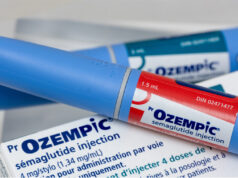 Roivios has announced today via press release new clinical data from the BIPASS-AKI Feasibility Study of the JuxtaFlow Renal Assist Device (RAD). Presented at the 2024 Society of Thoracic Surgeons (STS) Perioperative and Critical Care Conference (25–26 October, Philadelphia, USA), this study successfully met its objectives, which the researchers state reveals the devices potential to enhance renal function post-cardiac surgery with cardiopulmonary bypass, a “critical advancement” for patients with existing renal impairment.
Roivios has announced today via press release new clinical data from the BIPASS-AKI Feasibility Study of the JuxtaFlow Renal Assist Device (RAD). Presented at the 2024 Society of Thoracic Surgeons (STS) Perioperative and Critical Care Conference (25–26 October, Philadelphia, USA), this study successfully met its objectives, which the researchers state reveals the devices potential to enhance renal function post-cardiac surgery with cardiopulmonary bypass, a “critical advancement” for patients with existing renal impairment.
Cardiac surgeries involving cardiopulmonary bypass often increase postoperative complications, including elevated morbidity and mortality, and extended hospitalisations. Patients with chronic kidney disease (CKD) face a particularly high risk of acute kidney injury (AKI), with incidence rates up to 50% or more, largely influenced by the length of time a patient is on cardiopulmonary bypass.
The study aimed to evaluate the safety and feasibility of the JuxtaFlow RAD, a novel device designed to sustain or enhance renal function immediately following such surgeries. Evelio Rodriguez (Ascension Saint Thomas, Nashville, USA) presented the study’s findings at a conference poster session, emphasising three key outcomes: feasibility, safety, and efficacy.
Regarding feasibility, the average device placement time was 35 +/- 15 minutes post-surgery, with catheters being successfully placed in 100% of subjects under fluoroscopic guidance and 83% without fluoroscopy, and treatment initiation occurring 104 +/- 30 minutes after surgery completion.
In terms of safety, no cases of gross haematuria were observed, and no adverse events were linked to the device’s active energy.
Finally, addressing the efficacy results, only two of the 10 patients treated with the RAD experienced a postoperative AKI, with one of these cases resulting from a protocol deviation.
The study marks the first use of the JuxtaFlow RAD in a surgical setting. John Erbey, chief executive officer (CEO) of Roivios, stated: “This study tested the initiation of the JuxtaFlow RAD nearly two hours after patients were weaned from cardiopulmonary bypass, likely after the insult to their kidneys already occurred. The results highlight the potential of JuxtaFlow RAD in enhancing postoperative recovery.”












